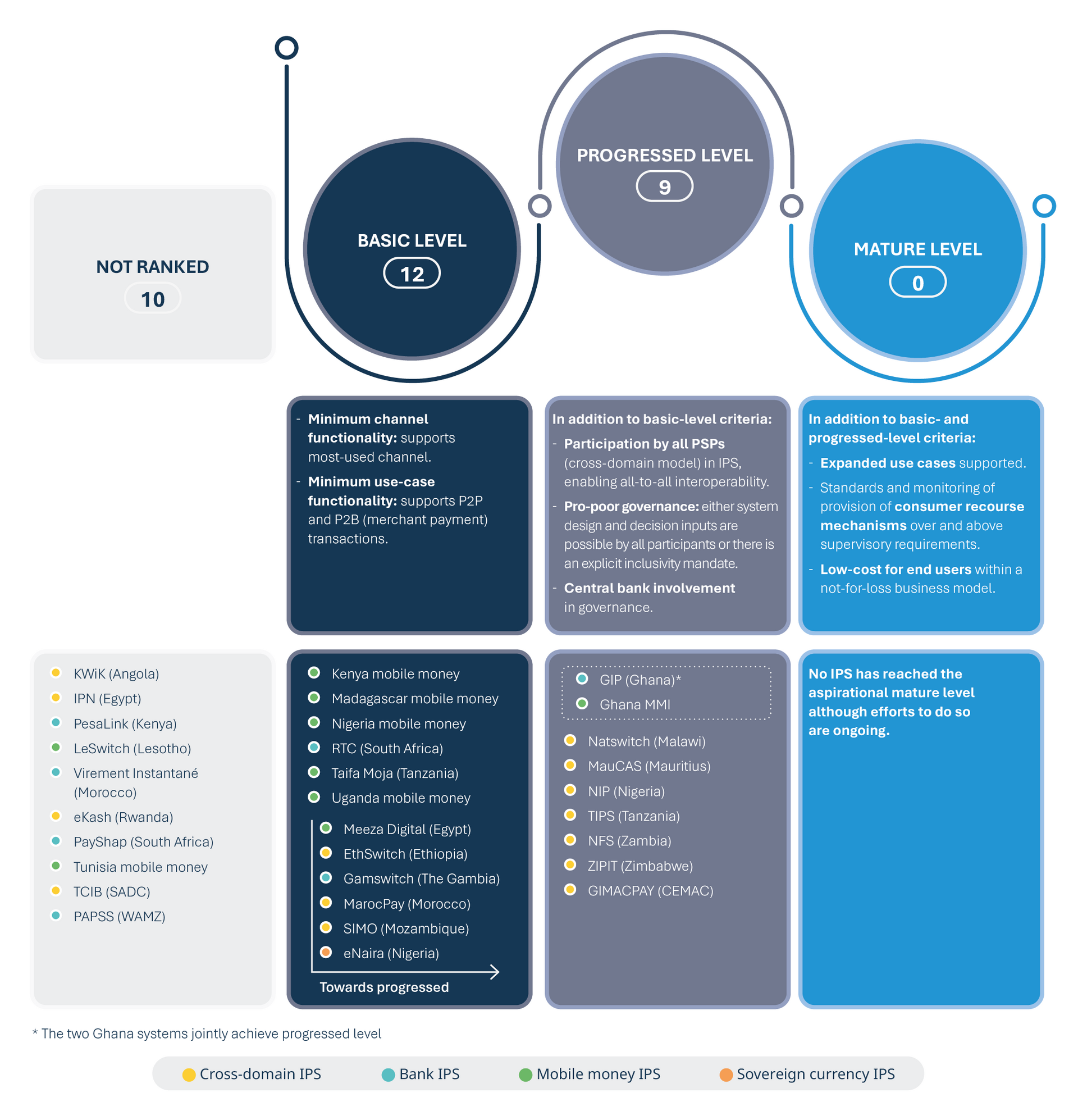
News
The Imperative for Progressive Regulations
by Sabine F. Mensah, Deputy CEO AfricaNenda - 23 April 2025
In the digital age, modern economies need real-time retail payment infrastructures, known as Instant Payment Systems (IPS), to facilitate quick and seamless money transfers for personal transactions and global trade. To achieve socio-economic goals like financial inclusion and digitalization, IPS must evolve into Inclusive Instant Payment Systems (IIPS), which cater to all users, including those with low financial or digital literacy and small-scale traders. Innovation-friendly regulations are crucial for this transformation, as they foster technological advancements and widespread adoption, ensuring that payment infrastructures are both cutting-edge and inclusive. This blog explores how supportive regulations can unlock the full potential of IPS, particularly in Africa.
IPS in Africa are becoming more inclusive, but gaps still remain. AfricaNenda’s State of Inclusive Instant Payment Systems (SIIPS) in Africa 2024 report categorizes IPS along an Inclusivity Spectrum that includes three levels. These are:
Basic: The IPS has limited channel and user case functionality.
Progressed: In addition to the basic level criteria, these IPS allow all payment service providers to participate (enabling all-to-all interoperability and enabling more use cases), the system is informed by pro-poor governance, and there’s central bank involvement.
Mature: In addition to the basic and progressed level criteria, these IPS have expanded use cases, have standards and monitoring provisions for consumer recourse mechanisms over and above supervisory requirements, and they have low cost for users.
Currently, 10 African IPS are not ranked, 12 are at a basic level of inclusivity, and nine are progressed. This is a significant change from 2023, when 12 IPS were unranked and only five had reached the progressed level of inclusivity. Despite this, progress remains slow, as most systems are still at a basic level of inclusivity and no IPS has reached the aspirational mature level.

Disproportionately rigid regulatory environments are hampering IPS inclusivity. Regulators, supervisors, and policy makers have a shared responsibility to drive IPS inclusivity. They are responsible for developing and enforcing regulations, policies, and guidelines that protect and enable IPS, and it’s within this regulatory environment that all other stakeholders, like IPS designers, operators, and participants, must operate. In practice, striking this balance is easier said than done.
Two examples of how disproportionately rigid regulations are stymying inclusivity are: (1) Limiting the potential reach of IPS by not providing a regulatory path to allow non-bank PSPs to join, and (2) Not allowing the use of technological innovations that could increase efficiency and reach, and lower operational costs.
The case of fintechs: an upward battle to directly join IPS. Fintechs have a proven track record of finding ways to reach underserved communities. For example, M-PESA contributed to increasing Kenya’s financial inclusion rate from 26 percent in 2007 to 84 percent in 2021 (OMFIF, 2024). Fintechs are rarely allowed to participate directly in an IPS, however. This is in part due to licensing barriers. Licensing categories for fintechs are often narrow and not necessarily tailored to their services. Complex regulations, lengthy and costly processes, and lack of support contribute to regulatory uncertainty. Consequently, fintechs are constrained in their ability to contribute their strengths to IPS, whether they are enhanced affordability, convenience, variety, or access. (CFA Institute, 2023). The result is limited new channels, instruments, and use cases in the IPS.
The case of electronic Know Your Customer (e-KYC): an underestimated tool to enhance IPS reach. All PSPs must conduct Know Your Customer (KYC) for new customers.[1] However, rigid and paper-based KYC processes often exclude vulnerable groups: 37 percent of unbanked adults lack the documentation needed for bank accounts, and 30 percent face similar barriers for mobile money accounts (Global Findex, 2021). eKYC, which uses electronic methods for identity verification, can address these issues by replacing manual processes with efficient, remote solutions. The FATF standards that many banks follow can still be fulfilled using eKYC, as they are flexible and technology neutral. Yet many regulators still classify processes using new technologies, such as remote onboarding, as high-risk (FATF, 2021). This regulatory-induced reluctance restricts the ability of PSPs to onboard customers more effectively, and ultimately limits their ability to reach more people with instant payments.
Innovation-friendly regulatory tools can enhance and accelerate inclusivity. Regulators, supervisors, and policy makers have the potential to unlock greater IPS inclusivity by adopting innovation-friendly regulatory tools. These include:
Leveraging the risk-based approach. Employing a risk-based approach to licensing and customer due diligence requirements would allow regulators to better identify and empirically assess the risk posed by a given business type or customer segment. In terms of licensing, this will allow regulators to update licensing categories to accommodate new activities, thereby permitting new business models to enter the market and potentially participate directly in IPS. For consumer due diligence requirements, a risk-based approach will allow for fit-for-purpose KYC processes, including eKYC, that are proportionate to the risks posed by customers, thereby enabling PSPs to onboard more customers.
Introduce and/or link the national financial inclusion strategy and digital payments policy to the IPS. Key policy documents already exist in most countries, however they are not always linked to the objectives of IPS. Linking them to IPS will align their objectives and make financial inclusion and digital payments a priority.
Develop regulatory guidance related to regulatory processes and considerations. Complex regulations and approaches to emerging trends like e-KYC have a strong impact on a PSP’s business strategy. For example, both regulatory uncertainty and strictness could disincentivize PSPs from engaging, which stunts innovation. Developing and introducing regulatory guidance reduces uncertainty and encourages responsible innovation.
Innovation-friendly regulations are not just a nice-to-have but are necessity for inclusivity in the payments sector. Fostering a regulatory environment that encourages technological advancements, promotes inclusive competition, and enhances consumer experience, can ensure that IPS evolve to meet current and new end user needs through new and enhanced payment channels, instruments, and use cases.
The regulatory tools discussed above are only some of the inclusivity enablers for regulators to consider. To see more enablers and discover their potential for enabling IPS to become powerful engines for economic growth and financial inclusion, download the SIIPS 2024 report.
[1] KYC involves proactively screening potential clients for risks related to money launcering, terror financing, corruption and fraud. This forms part of the ongoing customer due diligence process (Society for Worldwide Financial Telecommunications, n.d).


